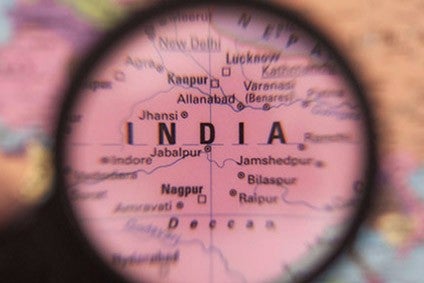
India’s major dairy companies are reorienting procurement and processing towards solid dairy products, taking advantage of the supply chain and demand disruptions caused by the 21-day national lockdown imposed by the government to control the spread of Covid-19.
“We are collecting 10-15% more milk as the smaller dairies have closed [leaving farmers with fewer outlets],” Rupinder Singh Sodhi, managing director of Gujarat Cooperative Milk Marketing Federation (GCMMF), which owns the Amul brand, told just-food.

Discover B2B Marketing That Performs
Combine business intelligence and editorial excellence to reach engaged professionals across 36 leading media platforms.
The additional milk is being converted into unsalted white butter (makhan) and milk powder, which have a shelf-life of one and two years respectively, he said.
Sodhi said his company has plenty of spare capacity in refrigeration and processing facilities to convert milk into milk powder, white butter and other solid products.
There is plenty of demand: summer, now just starting in India, has reduced milk production and consumers eat more milk powder, butter and other dairy solids at this time.
Usually, dairies will have manufactured plenty of these solid products already by April, but because Indian milk production was hit by floods last year and disruption caused by Covid-19, many manufacturers have been late to switch from fresh liquid to solid product manufacturing this year. Now is the time to start making milk powder and butter in earnest, Sohdi said.

US Tariffs are shifting - will you react or anticipate?
Don’t let policy changes catch you off guard. Stay proactive with real-time data and expert analysis.
By GlobalDataDemand for some other processed dairy products has been hit hard by Covid-19, he added. He pointed to cream – due to the closure of restaurants, where it is used to help make higher-end sauces – and ice cream, with parlours and street sellers also closed. As a result, milk, butter milk and curd (yoghurt) currently make up the bulk of dairy liquid production, Sodhi explained.
The lockdown has depressed milk prices available for unbranded milk producers, Ghanshiam Singh Rajorhia, president of the Indian Dairy Association, said. “They fell from INR28 (US$0.36) per litre to INR24 per litre and at places even lower,” he said.
However, according to Mr Sodhi, Amul continues to pay INR42 per litre for buffalo milk with 6% fat and INR31 per litre for cow milk containing 3.5% fat.
On the positive side, lower prices have helped revive some production facilities making milk powder that had closed recently because of commercial problems, Rajorhia said. “Units consuming 500,000 to a million litres of milk every day to manufacture milk power suddenly became economically viable,” he added.
Government officials are trying to help boost the dairy sector. The state government of Maharashtra is planning to purchase 1 million litres of milk per day at INR25 per litre for conversion into powder and butter to create a buffer stock, Kuldeep Sharma, founder of Suruchi Consultants, in New Delhi, said.
In the meantime, India’s dairy industry has dealt with swings in demand, especially in urban centres, following the implementation of the lockdown on 25 March. For the first three days, sales of dairy products increased 15%, falling 30% on the fourth day, Sodhi recalled. By then, the closure of hotels, restaurants and tea shops, plus the migration of poorer, newly-jobless workers from urban to rural areas depressed demand further. “Gradually it picked up but still it is 10 to 12 percent lower,” he said.
As with other food businesses, Indian dairy companies had to initially close until securing permits to reopen under rules controlling exemptions to the lockdown. This has hindered many small dairies struggling to administer the paperwork and receive authorisations to reopen.
However, larger cooperatives such as the GCMMF have successfully procured permits, with officials prioritising their applications as key food suppliers. “We got lots of proactive calls from various government departments checking on the help that we required,” Sodhi said. “Everybody was eager to ensure that milk is not in short supply and supply chains are not disrupted.”
That said, larger dairies procure only 30% of India’s 180 million tonnes of annual milk production, Rajorhia said, with 15% to 20% consumed at farm level, with the remaining 50% to 55% used by the hotels, restaurants and sweet shops to make products such as paneer and khoa. Given India’s hotels and sweet shops have shut down “there is a surplus milk supply in the villages,” he added.
Sharma is sceptical the crisis will have a long-term impact on the dairy industry. “Whenever the lockdown ends, hotel and restaurants should immediately start working at 50-60% capacity and home delivery will restart immediately.”





